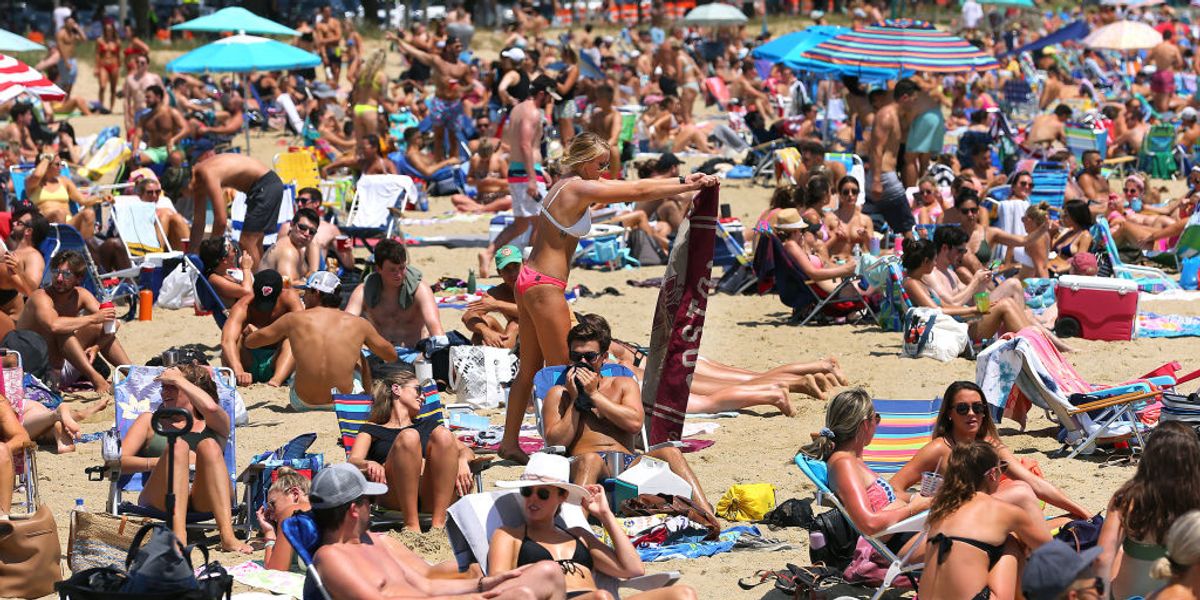There are over 5 million confirmed cases of coronavirus in the United States, according to the Johns Hopkins Coronavirus Resource Center. The actual number could be much higher when including Americans who have not been diagnosed or who were asymptomatic. Dr. Deborah Birx, the Coronavirus Response Coordinator for the White House Coronavirus Task Force, said the medical community might have underestimated the number of asymptomatic cases of COVID-19.
A pandemic analyst contends that all of those positive cases could be enabling herd immunity that could be slowing down the spread of COVID-19 in the southern United States.
The Centers for Disease Control and Prevention released an updated guidance this week that noted people who have recovered from COVID-19 are likely safe from coronavirus for three months.
Researchers in Singapore released a peer-reviewed study that found 23 patients who recovered from SARS in 2003 all retained memory T-cells from the original pathogen in their systems 17 years later. This has provided scientists some hope that COVID-19 may also produce similar T-cells that enable long-term immunity.
As the virus spreads, the population develops an immunity to it. States in the Sun Belt, such as Arizona, Louisiana, Mississippi, Nevada, South Carolina, and Texas, experienced a spike of coronavirus cases in June and July. Those same states have seen a dramatic decrease in COVID-19 cases in the past two weeks.
Pandemic analyst Trevor Bedford from the University of Washington believes these states are having their coronavirus cases drop because the “population immunity may be contributing to curbing COVID-19 in Florida, Arizona and Texas, where recent surges have resulted in substantial epidemics.”
In a thread of 16 tweets, Bedford presented a case that these states had achieved herd immunity and that the coronavirus wasn’t finding people who weren’t previously exposed to the respiratory disease.
“Thus, I believe the substantial epidemics in Arizona, Florida and Texas will leave enough immunity to assist in keeping COVID-19 controlled,” Bedford wrote. However, he cautioned that “this level of immunity is not compatible with a full return to societal behavior as existed before the pandemic.”
He stated that “societal behavior has dramatically reduced” the transmission rate through “social distancing, mask wearing, etc.” Bedford believes that societal behavior and precautions could mean that “we don’t need as much immunity to impact spread.”
Bedford used Florida as an example, and estimated that approximately 20% of the state’s population, around 4 million people, already had coronavirus. “Even 10 percent population immunity starts to make a difference when Rt is around 1.2,” Bedford said. Rt is the actual transmission rate of a virus at a given time.
This corresponds to a peak Rt of between 1.2 and 1.4 in late-May / early-June and steady reductions since this poin… https://t.co/qNZ3VLt1V7
— Trevor Bedford (@Trevor Bedford)1596838557.0
At the moment, nobody knows exactly what the threshold of population infection needs to be at to attain herd immunity. Mike Ryan, executive director of the World Health Organization’s health emergencies program, said most scientists believe 60% to 80% of the population needs to be vaccinated or have natural antibodies to achieve herd immunity.
Researchers from Stockholm University in Sweden and the University of Nottingham in Britain published a new study in the journal Science on Friday. The scientists estimate that herd immunity could be achieved at a population-wide infection rate of approximately 40%.
Youyang Gu, a computer scientist whose coronavirus projections are one of 34 pandemic models tracked by the CDC, believes that herd immunity could help in the fight against COVID-19.
“Immunity may play a significant part in the regions that are declining,” Gu told MIT Technology Review. Gu estimates that approximately 35 million Americans have now been infected, which is more than 10% of the country’s population.
Gu doesn’t forecast another spike in coronavirus cases in southern states at least until the fall, which is how far in advance his models look forward.
Tom Britton, a statistician who models the COVID-19 pandemic at the University of Stockholm, also believes herd immunity could decrease the number of COVID-19 cases.
“Clearly, as susceptibility drops, disease spreading drops. No one can say different,” Britton said. “The question is to what degree is the effect because of interventions or because of immunity? In regions with very large outbreaks—New York, Milan, Madrid, and London—I am convinced it’s a combination.”
“I would say in Sweden there is no doubt that immunity plays an important role, more than in other countries,” Britton said. “Now this epidemic is slowly stopping.”
Dr. Anthony Fauci, a member of the White House Coronavirus Task Force, is not in favor of achieving herd immunity by allowing the coronavirus to spread throughout the country unchecked.
“If everyone contracted it, even with the relatively high percentage of people without symptoms…a lot of people are going to die,” Fauci said during an Instagram interview with actor Matthew McConaughey on Thursday.
“If you look at the United States of America with our epidemic of obesity as it were, with the number of people with hypertension, with the number of people with diabetes, if everyone got infected, the death toll would be enormous and totally unacceptable,” Fauci said.
“And that’s the reason why we are against saying: ‘Let it fly. Let everyone get infected and we’ll be fine.’ That’s a bad idea,” Fauci, the director of the National Institute of Allergy and Infectious Diseases, said.
